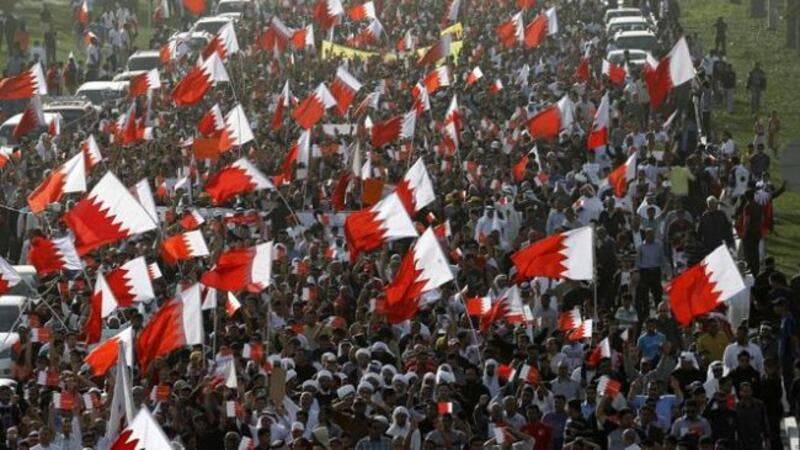
Al-Wifaq has led many of the major opposition protests throughout Bahrain since mass demonstrations in February 2011 (Credit: AFP)
BEIRUT — Interior Minister Bassam Mawlawi has sent a letter to the Directorate of General Security requesting that measures be taken to deport from Lebanon all non-Lebanese members of the main Bahraini opposition party al-Wifaq, the state-run National News Agency reported Wednesday. Al-Wifaq held a press conference in Beirut last week, angering Bahraini authorities.
Here’s what we know:
• Earlier Wednesday, Mawlawi received a phone call on Wednesday from his Bahraini counterpart, Rached ben Abdallah al-Khalifa, during which Mawlawi assured him of his “refusal to allow Lebanon to be a platform for spreading hatred or hostility against any Arab country, especially [those] of the Gulf Cooperation Council,” L'Orient Today's correspondent Hoda Chedid reported.
• Bahrain’s Shiite opposition group al-Wifaq, a movement that was disbanded in Bahrain by the authorities and which has close ties with Hezbollah, held a press conference in the southern suburbs of Beirut on Thursday to release its annual report on human rights violations in the kingdom.
• The Bahraini Ministry of Foreign Affairs on Sunday denounced the holding of the press conference by what it called “hostile personnel designated on supporting and sponsoring terrorism lists” and addressed a protest note to the Lebanese government and the Arab League. The statement also called on the Lebanese government to prohibit events “that aim to offend the Kingdom of Bahrain and are inconsistent with the most basic diplomatic norms and the brotherly relations between the two people.”
• According to our correspondent, Mawlawi discussed with his counterpart the measures taken by his ministry through various Internal Security Forces branches concerning the collection of information related to people who are part of groups or institutions that are “in opposition to the brotherly Arab countries.”
• Lebanon is trying to resolve an ongoing diplomatic crisis with the Gulf monarchies that erupted in October following the broadcast of comments by then Information Minister George Kurdahi on Riyadh’s intervention in the war in Yemen. Kurdahi tendered his resignation as minister at the beginning of December.
• Prime Minister Najib Mikati hoped, after President Emmanuel Macron's visit to Riyadh as part of a Gulf tour at the beginning of December, for a resolution of the diplomatic crisis with Gulf countries. These hopes were buoyed after Saudi Arabia’s crown prince Mohamad Bin Salman called Mikati and the announcement of a “French-Saudi humanitarian support mechanism” for Lebanon. However, the kingdom has taken no steps to lift or lighten an import ban on Lebanese goods or to re-establish diplomatic ties. Meanwhile, the details of the support mechanism remain unclear.
• Against the backdrop of this dispute, the GCC called in a summit held in Riyadh on Tuesday for Beirut to “carry out reforms” and “prevent Hezbollah from carrying out terrorist operations,” referring to the smuggling of drugs from Lebanon to Saudi Arabia and the alleged discovery of cells affiliated with Hezbollah in multiple Arab countries.